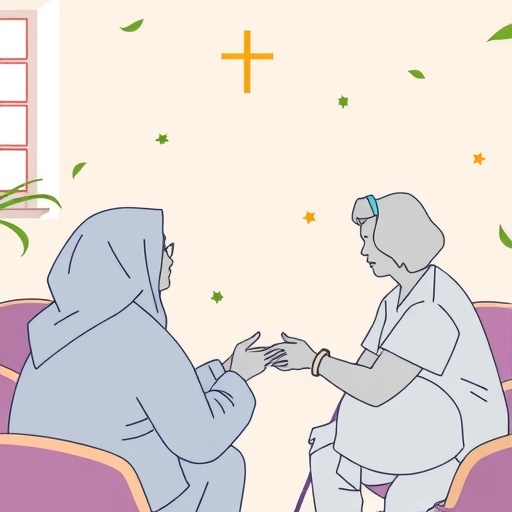CU Anschutz researchers say this can lead to potentially deadly medical errors
AURORA, Colo. (Feb. 25, 2019) – A survey of Colorado home health care clinicians (HHCs) revealed that 60 percent said they had not received enough information to guide patient treatment while 52 percent said patients often had unrealistic expectations of the kind of care they would receive.
The study, conducted by researchers at the University of Colorado Anschutz Medical Campus, also showed major gaps in communication between hospital and home health care staff, some that could have serious medical consequences.
The study was published today in the Journal of the American Medical Directors Association.
“We have heard of medication errors occurring between hospitals and home health care providers,” said the study’s lead author Christine D. Jones, MD, MS, assistant professor at the University of Colorado School of Medicine. “As a result, patients can receive the wrong medication or the wrong dose. Some home health providers don’t get accurate information about how long to leave a urinary catheter or intravenous line in.”
Jones and her colleagues surveyed nurses and staff at 56 HHC agencies throughout Colorado. Participants were sent a 48-question survey covering communication between hospitals and HHCs, patient safety, pending tests, medication schedules, clinician contact and other areas.
More than half said hospitals did not adequately prepare patients for home health care upon discharge. They also said patients often expected a level of home care that was simply not available including extended hours, housekeeping and help with transportation.
Home health care workers with access to electronic health records (EHRs) for referring providers had fewer problems relating to a lack of information about patients, including critical medication data.
They were able to electronically access notes, orders, lab and radiology results and referrals. Some 12 percent of respondents reported positive experiences when accessing the Colorado Regional Health Information Organization (CORHIO, http://www.
Yet many did not have access to such information.
“Although almost all (96 percent) indicated that Internet-based access to a patient’s hospital record would be at least somewhat useful,” Jones said. “Fewer than half reported having access to EHRs for referring hospitals or clinics.”
She said the survey revealed problems getting medication doses right due to conflicting information.
“Notably, additional studies have found extremely high rates of medication discrepancies (94 percent – 100 percent) when referring provider and HHC medications lists are compared,” Jones said.
The study suggested targeted education of hospital staff about what home health clinicians actually provide to patients and caregivers to avoid frustration.
Jones noted that if these issues are arising in Colorado, they could signify a national problem.
“For hospitals and HHC agencies seeking strategies to improve communication, this study can provide targets for improvement,” she said. “Future interventions to improve communication between the hospital and HHC should aim to improve preparation of patients and caregivers to ensure they know what to expect from HHC and to provide access to EHR information for HHC agencies.”
###
The study’s co-authors include: Jacqueline Jones, PhD, RN, FAAN; Kathryn H. Bowles, PhD, RN, FAAN, FACMI; Linda Flynn, PhD, RN, FAAN; Frederick A. Masoudi, MD, MSPH; Eric A. Coleman, MD, MPH; Cari Levy, MD, PhD and Rebecca S. Boxer, MD, MS.
Media Contact
David Kelly
[email protected]
http://dx.




